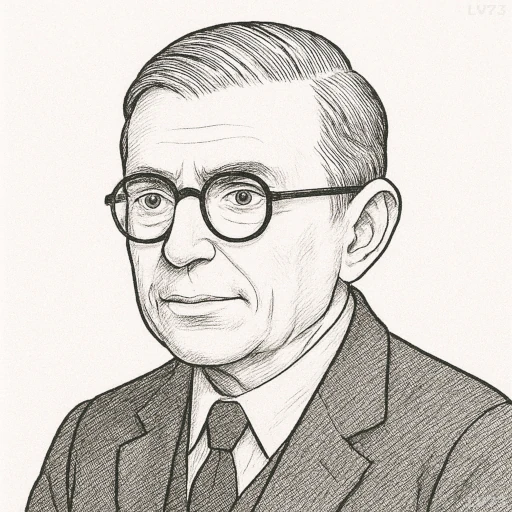“As far as men go, it is not what they are that interests me, but what they can become.”

- June 21, 1905 – April 15, 1980
- Born in France
- Philosopher, novelist, playwright
table of contents
Quote
“As far as men go, it is not what they are that interests me, but what they can become.”
Explanation
In this quote, Sartre emphasizes his existentialist view that human beings are not defined by their current state or past actions, but by their potential and the freedom they have to shape their future. What matters to Sartre is not the fixed identity or static nature of an individual, but rather the possibilities and choices that define who they can become. For Sartre, existence is an ongoing process of becoming—we are always in a state of transformation, and it is through our actions and decisions that we create our essence and our identity. This view stresses the idea that humans are free to define themselves, and this freedom to change and grow is what makes life meaningful.
Sartre rejects the idea of a predetermined essence or inherent nature that defines a person, which aligns with his existentialist belief that people are not born with an inherent purpose. Instead, individuals have the freedom to choose their actions and their values, and thus their future possibilities are what make them interesting, not their current situation. Sartre is more concerned with the potential for change and the ability to transcend one’s current state, which is a central theme in existentialism. The focus is on what one can become, as this reflects freedom, self-creation, and the possibilities inherent in each moment of life.
In modern contexts, this quote can be interpreted as a call to focus on growth and potential in others, rather than fixating on their past mistakes or current limitations. In a world that often emphasizes labels, identities, and categories, Sartre encourages us to see people not for who they are now, but for who they have the capacity to become. This view encourages personal transformation, self-improvement, and a focus on possibility—both for ourselves and others. Sartre’s words invite us to acknowledge the freedom and agency inherent in the human condition, and to embrace the future as something that can be shaped by the choices we make today.
Would you like to share your impressions or related stories about this quote in the comments section?
